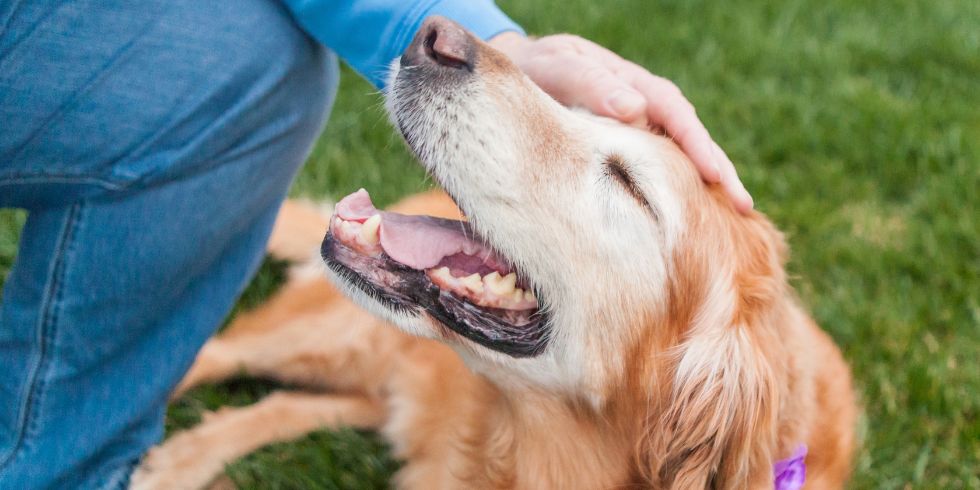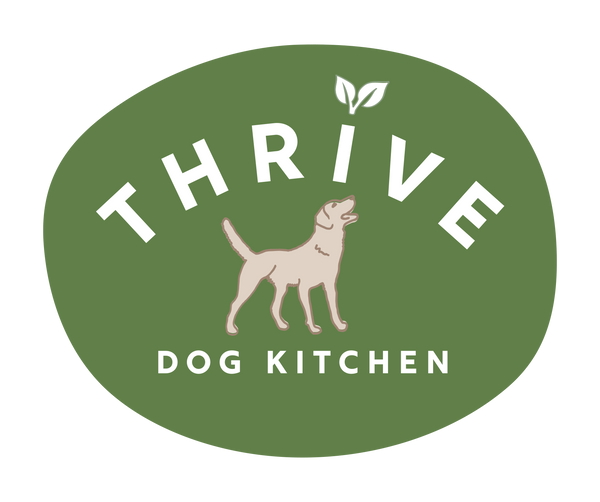
Caring for a Senior Dog with Fresh Foods and Other Tips
Share
As a dog parent, it’s hard to imagine a time when our loyal companions won’t be by our side. Jessie, my own senior dog, has been a steadfast friend, and she deserves to enjoy her golden years comfortably and with dignity. Just like her, all senior dogs need special care and attention to thrive in their later years.
Your senior dog has stood by you with love and loyalty. In return, providing the best possible care will be rewarding for both of you. Here are some essential tips for supporting your dog as they transition into their retirement years.
When is a Dog Considered Senior?
Determining when a dog enters their senior years depends largely on their breed and size. Smaller breeds tend to age more slowly and may not be considered senior until they’re 10–12 years old, while larger breeds, like Great Danes or Mastiffs, may reach this stage as early as 5–7 years. Here’s a guide based on size:
- Small breeds (under 9 kg): Typically senior by 10–12 years old.
- Medium breeds (9–23 kg): Often senior by 8–10 years.
- Large breeds (23–41 kg): Senior around 7–9 years.
- Giant breeds (over 41 kg): May be considered senior as early as 5–7 years.
Just like humans, dogs’ needs change as they age. Recognizing when they’ve entered this life stage allows us to proactively support their well-being with nutrition, exercise, and regular vet checkups.
Signs Your Dog is Getting Older
Many dog parents might not know what to look for as their dog ages. A helpful acronym, DISHA, can guide you through recognizing common signs:
- Disorientation – Appearing “lost” or confused, staring blankly, getting stuck in corners, or going to the wrong side of an entry point.
- Interactions – Changes in behavior with family, other pets, or strangers, such as increased irritability, aggression, or attention-seeking.
- Sleep-Wake Cycles – More sleep during the day or waking more often at night, often accompanied by disorientation.
- House-soiling – Accidents or decreased signaling when needing to go outside, or going outside but still having accidents indoors.
- Activity Changes – Less energy or reluctance to do once-loved activities, such as jumping onto furniture, playing fetch, or increased pacing and panting.
Your dog may show one or multiple signs, which may change over time. Recognizing these signs can help you support their needs as they age.
How to care for a senior dog
Caring for your senior dog involves focusing on three main areas:
- Physical Health
- Cognitive Health
- Mental Health
Physical Health
Ageing dogs, like ageing humans, can face a range of physical changes. Research funded by Mars Petcare in 2018 found that senior dogs are prone to physiological changes like inflammation, which can impact their joints and overall mobility. Weight management is critical since extra weight can exacerbate these issues. Aim to keep your dog at a healthy weight through regular, age-appropriate exercise, like shorter, frequent walks or swimming for low-impact exercise.
Additional tips for supporting your senior dog’s physical needs:
- Use ramps or steps to avoid injuries.
- Keep their sleeping area comfortable.
- Watch for signs of pain, and visit your vet twice a year for check-ups.
- Incorporate gentle massage and canine conditioning to improve muscle tone and increase strength.
Cognitive Health
Cognitive decline can also affect senior dogs, but stimulating activities and functional foods may help. Simple activities, like exploring new places or playing brain games, can work wonders.
Here are some fun brain games:
- Treasure Hunt: Hide treats or meals in the house or garden and let your dog “hunt” for them.
- Scatter Feed: Toss small treats or chopped fruit around the garden for a scent-driven “search and find.”
- Guess Which Hand: Show your dog a treat, hide it in one of your hands, and let them choose which hand has it.
Certain foods, like those rich in vitamin C, vitamin E, and Omega-3 fatty acids, are known to support brain health. Small amounts of antioxidant-rich fruits and veggies, coconut oil, and milk thistle can also benefit their cognitive function.
Mental Health
Meeting your dog’s emotional needs can help them feel secure and loved in this new life stage. For many dogs, a routine becomes even more important. Try to keep feeding, walking, and playtime on a consistent schedule to reduce any anxiety they may feel.
Offer them a cosy place to retreat to, where they can relax and unwind. Simple acts, like spending quiet time together, grooming them, or letting them sleep on the bed, can make them feel comforted and connected.
Feeding Your Senior Dog
A fresh, whole-food diet rich in high-quality protein, healthy fats, and functional carbohydrates can greatly support your dog’s well-being. Even replacing just 10% of their kibble with fresh foods can boost their health.
Feeding your senior dog, more fresh foods may help with:
- Arthritis
- Constipation
- Tooth and gum disease
- Senility
The addition of supplements may help your dog with the symptoms of ageing. Work with your integrative or holistic veterinarian to see if a supplement for ageing joints and/ or brain health will benefit your dog. Bear in mind the supplement sector is an unregulated industry for both humans and dogs.
Whether you feed kibble, raw, or a mix, adding a variety of fresh foods can support a senior dog’s health. Here are a few beneficial options:
|
Food |
Benefit |
|
Fatty Fish (salmon, anchovies, sardines) |
Rich in Omega-3 fatty acids, vitamin D and Vitamin 12, which are integral nutrients for longevity. |
|
Blueberries |
High antioxidants my reduce cell damage |
|
Ginger |
Eases an upset tummy, reduces oxidative stress and may reduce memory impairment. |
|
Turmeric |
The active ingredient, curcumin, helps improve cognition, and manage inflammation |
|
Supports immune health, gut health and longevity |
|
|
Butternut Squash |
Soothes an upset stomach, protects from inflammation, and supports the growth of good bacteria in the gut |
|
Provides gut-friendly fibre and anti-inflammatory properties |
|
|
Chia Seeds |
Helps with hydration and weight management, as dogs may feel fuller for longer. |
|
Hemp Seeds |
May reduce joint pain, soothe inflammation, and reduce anxiety |
|
Psyllium Husk |
Packed with dietary fibre to support digestive health |
|
Spinach |
Rich in folate, which is critical for the production of DNA. It’s also packed with antioxidants that fight inflammation and disease. |
|
Eggs |
Supports brain function and memory |
Protein for senior dogs
Contrary to belief, senior dogs need higher protein levels to prevent muscle loss and is vital to their overall health and well-being.
“Healthy older dogs need more protein – about 50% more protein – due to an age-related decline in protein synthesis and an increase in protein turnover.” Diana Laverdure-Dunetz
Protein is the source of amino acids which is responsible for muscle and tissue repair. It supports the growth of skin, hair, nails, joints, tendons, ligaments, cartilage, and muscle fibre. It also supports the immune system.
If your older dog’s diet does not contain sufficient amounts of high-quality protein, then their body will steal it from their low body mass (LBM). Increasing the amount of dietary protein your senior dog is fed will slow the loss of low body mass, therefore potentially extending your dog’s life.
If your dog is fed non-functional carbohydrates, that may increase inflammation in their body. Ideally, replace it with protein from fresh whole food sources. Take steps to eliminate, or at least, minimise, the amount of ultra-processed foods they eat.
Antioxidants for Longevity
Antioxidants reduce the harmful effects of free radicals on the body. Foods like broccoli, strawberries, and leafy greens are excellent natural sources that support cellular health and longevity.
While commercial dog foods may contain antioxidants, they often are from synthetic sources which your dog will not absorb as well as those antioxidants sourced from fresh whole foods.
Eating Habit Changes
As your dog ages their eating habits may change. Dr. Judy Morgan, renowned author and veterinarian, suggests that senior dogs may prefer their meals warm, rather than cold.
According to Chinese medicine, food that is cold or frozen may lead to stagnation in the digestive process, which is especially damaging for senior dogs. Therefore, ensure food is at room temperature or warmer when feeding your dog. This can be done in a few ways:
- Pour hot (not boiling) water over their food; allow it to cool slightly.
- Pour warmed bone broth over their food; allow it to cool slightly.
- Heat the meal in a double boiler
Every dog’s needs are unique, so tailor their diet and care based on what works best for them. Ultimately, feeding fresh, whole foods is one of the best ways to support your aging dog.
Loving Them Through It All
Above all, your love and attention are the most important things you can give your dog. From their first day to their last, continue to offer them the comfort and care they deserve.
